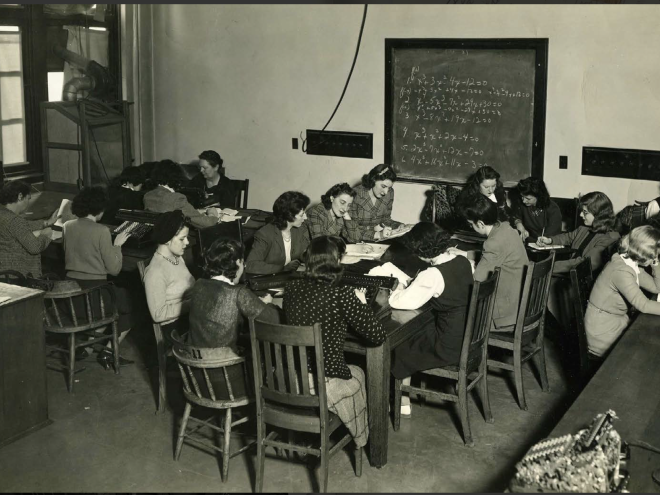Eleanor Schiff is a seventeen-year-old high school student living with her family in Philadelphia. The year is 1942, and the Schiffs are anxious about their relatives in Poland. The Joint Distribution Committee is reporting about violence against Europe’s Jews, at a level worse than the pogroms of the past. Americans are now in the war, but an Allied victory is still in the future. Eleanor’s idol is the First Lady, Eleanor Roosevelt. Like her famous namesake, young Eleanor is often plagued by self-doubt and needs to remind herself to take chances. When a brilliant mathematician, Mary Mauchly (a real historical figure), recruits Eleanor for a secret program at the University of Pennsylvania, the gifted student is conflicted. She learns to calculate the risks and benefits of serving her country in a high-pressure program, and finds her own path forward.
Complicating the equation for Eleanor is a secret she has carried with her from early childhood. When her father, a professor of mathematics, suffered a disabling stroke, Eleanor blamed herself for the tragedy. The genius she has inherited from him has become a burden, forcing her to take the circuitous route of pretending she is actually inept with numbers. When she accidentally leaves her notebook — a kind of Cinderella’s glass slipper — at the Pennsylvania State Math Meet, Mary Mauchley returns it to her. Instead of pairing her with a prince, Mary gives Eleanor a role in the Philadelphia Computing Section, where female “computers” will ensure the accuracy of US ballistics. Although the author incorporates actual equations and careful descriptions of the project into the book, her real focus is on Eleanor and her colleagues, who are all young women living away from home in a secret environment. The story, which is full of tension, competition, and camaraderie, has the thrilling authenticity of a 1940s movie. Eleanor encounters antisemitism, while her friend Alyce, who is Black, confronts racism.
Eleanor’s insight into calculating the trajectory of a shell sends her to a military base in California, where she is directly involved in perfecting the accuracy of the Norden bombsight device. There, she becomes attracted to a pilot from Utah whose background could not be more different than her own. Rabbi Richmond, a chaplain at the base, offers her the support she needs to sort through feelings about her past and the current events in Europe. With the rabbi’s help, Eleanor is able to complete her project with the military, and to redirect her own trajectory.
Emily Schneider writes about literature, feminism, and culture for Tablet, The Forward, The Horn Book, and other publications, and writes about children’s books on her blog. She has a Ph.D. in Romance Languages and Literatures.





